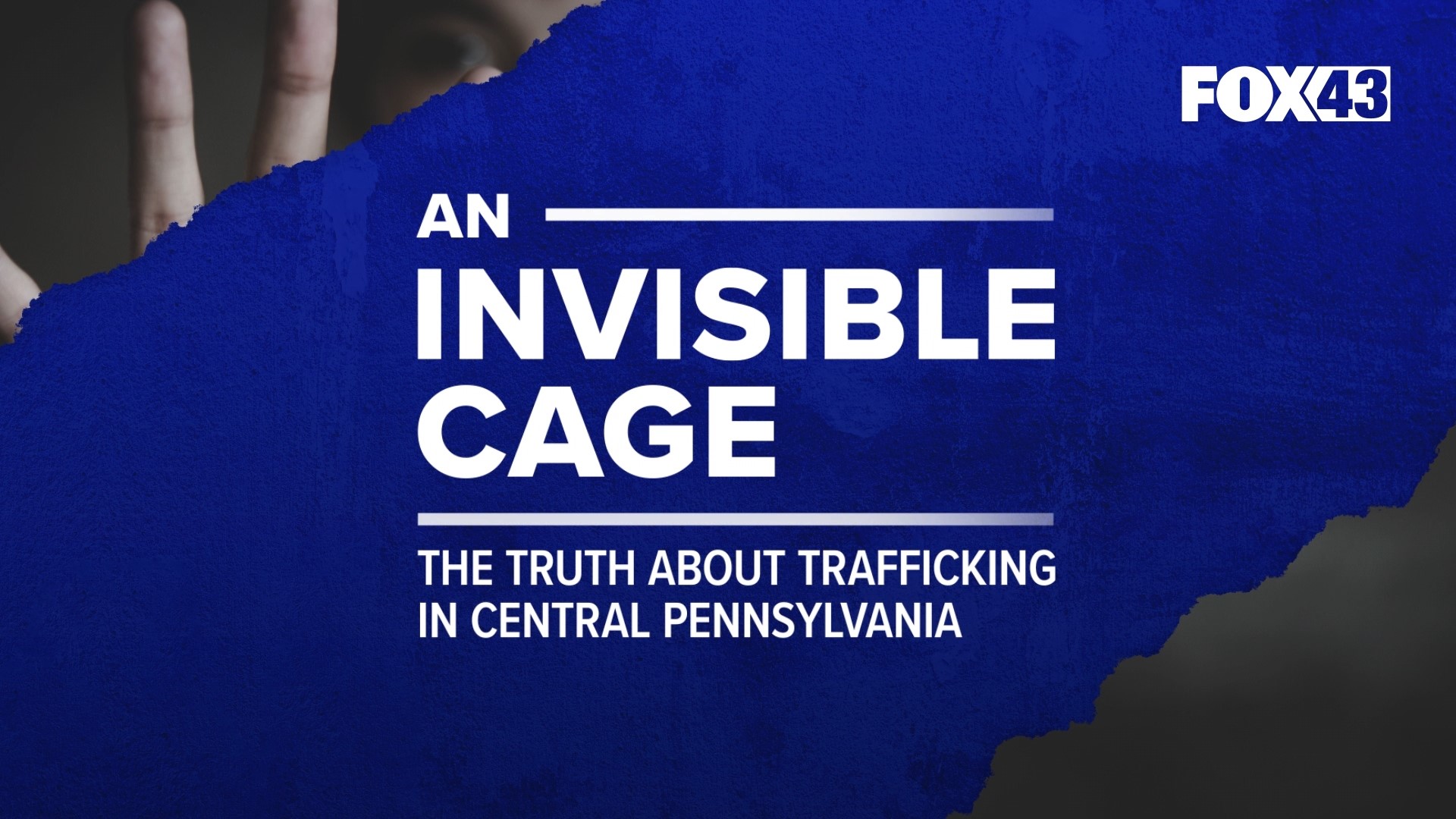PENNSYLVANIA, USA — In the past five years, approximately 800 human trafficking offenses were filed in the Pennsylvania court system.
Thousands more are never reported. These include sex trafficking, labor trafficking and trafficking in minors.
The county with the highest number of reported trafficking offenses in the state is Lancaster County, right here in central Pennsylvania.
And the 3 most common types of human trafficking?
Sex trafficking, debt bondage (meaning you are held hostage to pay off a debt) and forced labor or involuntary servitude, which—according to the department of state—is the biggest sector of trafficking in the world.
But it is difficult to identify, hard to comprehend and even tougher to take down.
That's the challenge facing law enforcement across the state of Pennsylvania— especially those charged with working to unearth the root cause of trafficking and educate others about the nearly invisible signs and symptoms
"Everything that you would see, that you think would be on television, what you've taken from movies and stuff, every time I talk on it I try to tell people to throw that out the window."
This woman is an undercover trooper with the Pennsylvania State Police. We cannot reveal her identity because of the sensitive nature of her job.
"I've been a state trooper for nine years now and I really didn't realize how prevalent this issue is."
She does a dangerous job to save, support and educate the victims of human trafficking.
"Just the sheer amount is shocking. Anybody can be a target. Anybody can be a victim of human trafficking."
What does human trafficking look like?
Human trafficking may not look like what you expect.
"Everything that you would see, that you think would be on television, what you've taken from movies and stuff, every time I talk on it I try to tell people to throw that out the window."
The crime is often much more subtle than grabbing someone off the side of the road.
"It's not so much the movie "Taken," which is what you're looking for. The bondage, the ropes around peoples' wrists, people getting hauled into vans and things like that. I guess it's more so of a body language between people and different types of signs."
Malnourished. Exhausted. Disoriented. These are all signs of a person being trafficked.
"They have a lack of knowledge when it comes to their location, travel plans. They take verbal abuse extremely easily. There's so many different types of signs and indicators when it comes to trafficking."
How does it happen?
Human traffickers do not discriminate in their victims.
"Anybody can be a target. Anybody can be a victim of human trafficking. Traffickers are good at what they do. The seek out vulnerabilities in specific individuals."
Addiction. Poverty. Mental illness. Previous abuse. Any or all of these can mark someone as a target for trafficking.
"The internet acts as a world-wide marketplace. You can virtually buy and sell sex anywhere. Which is scary. It's also a place where you can find a victim extremely easily. I mean, people put tons of information on the internet about themselves and then especially having social media, you know, people will put anything on there."
Trafficking is a $150 billion criminal industry.
"If they're going through a really hard time at home, lost a job. If they're having a hard time with addiction. And traffickers utilize that in an effort to seek out their victims. So [the internet] acts as both. A place for them to exploit their victims but also a place for them to virtually find a victim anywhere."
Who is a trafficker?
Anyone can be a trafficker—even those you would least suspect.
"Trafficking usually comes down through somebody that's posing as a trusted friend or a potential love interest. There's also such a thing as familial trafficking where it's coming through different family members."
In fact, familial trafficking is much more common than a random kidnapper.
"Not to say that it doesn't happen, but it's very rare that trafficking would happen in any form of abduction."
Why are traffickers in Pennsylvania?
"Pennsylvania is huge, first of all. The state is gigantic. But it's vastly filled with an interstate travel system. Human trafficking is a transient business. They go from one state to another, across state lines and it's all over the board."
There are 23 interstate highways in Pennsylvania. The commonwealth is also surrounded by six other states and Lake Erie, providing a wealth of escape routes to any trafficker.
"We do see a lot of cases and victims that come from different hotels, they go from location to location. So I would say it is very heavily travel based which makes Pennsylvania a huge hub for human trafficking."

